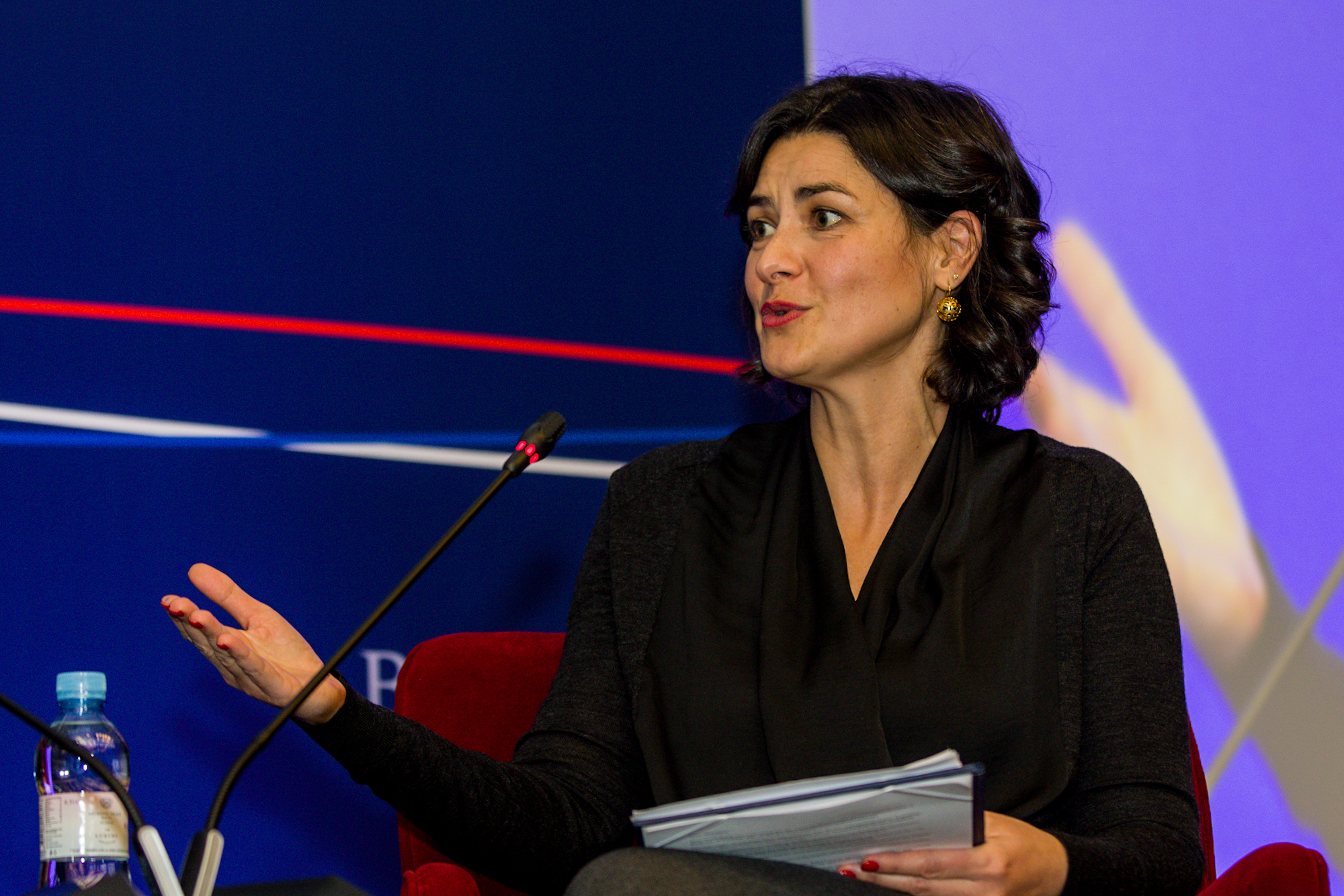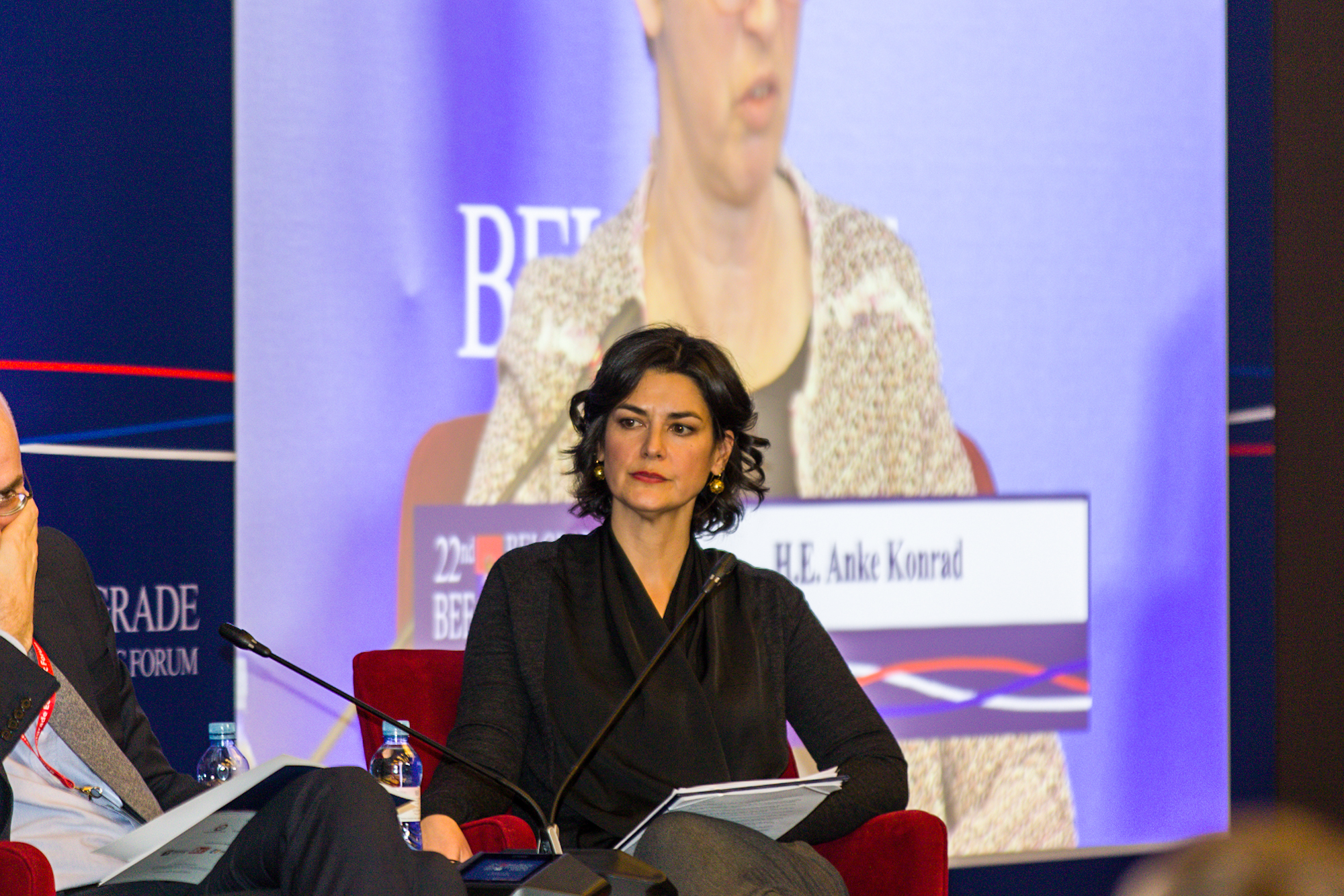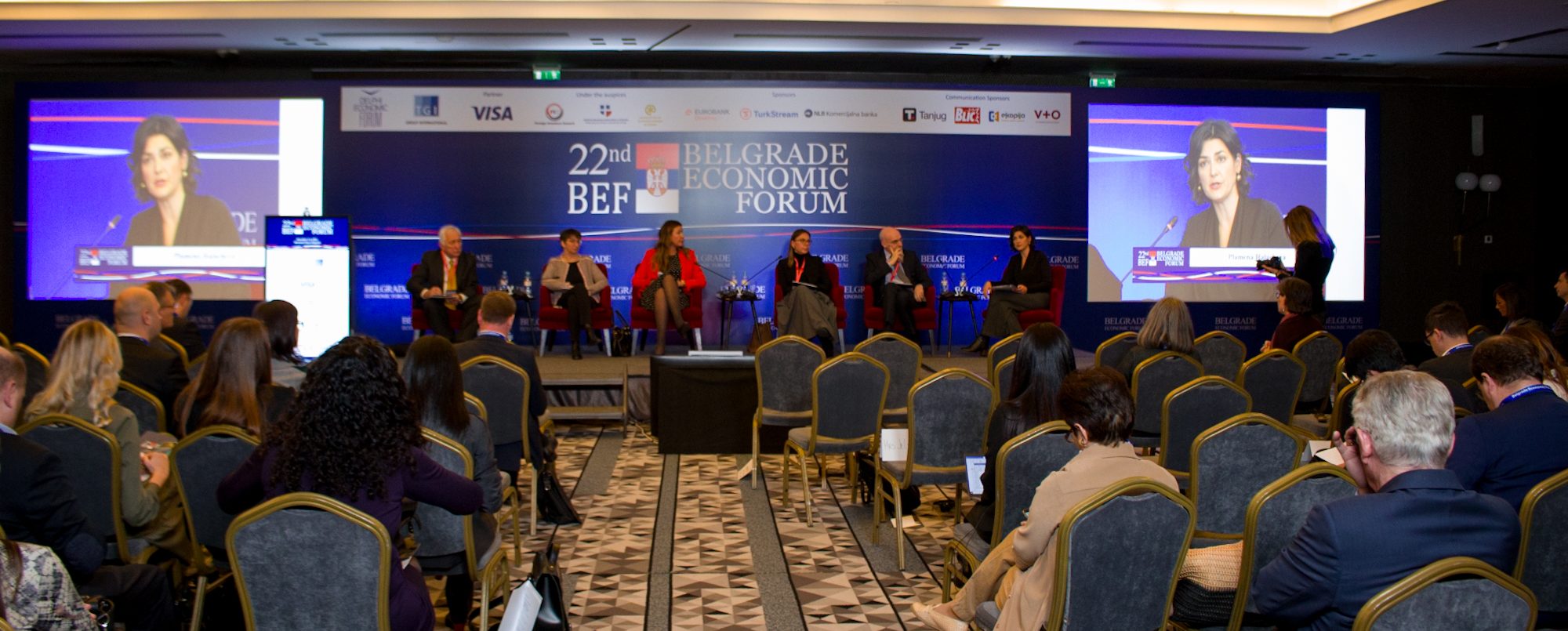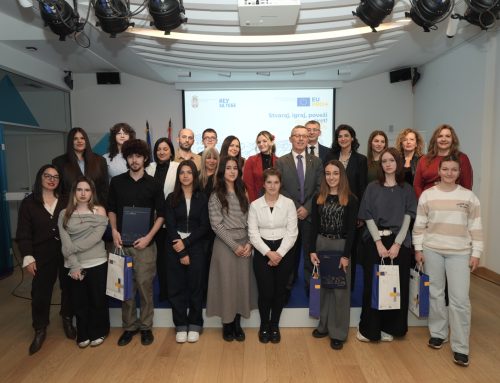How to unlock the process of European integration of the Western Balkans and what role can the summit of leaders of the European Union and the region in Tirana play in this, were the topics of one of the panels during the Belgrade Economic Forum.
The Deputy Head of the EU Delegation in Serbia, Plamena Halacheva, said that the fact that the EU-WB6 Summit will be hosted for the first time in the region itself is a strong signal, stressing the importance for all Western Balkans partners to engage and be present at the table.
She stated that the strategic partnership between the EU and the region is more important than ever. The EU is progressively deepening ties with the Western Balkans, and the EU-WB Summit testifies of this. “The Summit is expected to conclude with an outcome document, that will contain concrete deliverables, with direct benefits for the citizens of the region, such as the EUR 1 billion energy support package targeting vulnerable families and SMEs, continued support to migration management, food security and the region’s digital transformation, and hopefully, the signature of the roaming agreement bringing the Western Balkans into the EU roaming space,” announced Halacheva.

“A common vision of the future involves mutual responsibilities and shared values, and this requires sustained progress towards full alignment with the EU Common Foreign and Security Policy “, Halacheva concluded.
The Ambassador of Sweden to Serbia, Annika Ben David, said that the countries of the Western Balkans, which are candidates for the EU, must clearly decide on the EU’s policy towards Ukraine. She also stated that Sweden’s presidency of the European Union from January 1 will be marked by support for Ukraine.
“We are on the verge of a security threat in Europe, because we have a nuclear power that has launched a massive aggression, after partially threatening parts of the territory of Ukraine, and we see more and more evidence of crimes, so this is a historic time,” said Ambassador Ben David.

German Ambassador Anke Konrad assessed that euroscepticism in the Western Balkans stems from a mistaken perception that the EU is not committed to the process.
“Germany has always been and remains firmly committed to supporting the countries of the region in their accession process. The EU allocated and allocates large funds for the region. In this way, the interest, commitment and desire to see those countries in the European Union was shown, otherwise there would be no investment at all,” she said.
The Ambassador of Italy to Serbia, Luca Gori, singled out three key steps that Serbia needs to take in order to progress in the European integration process.
“The first step is harmonisation with the EU’s foreign policy, the second is the normalisation of relations between Belgrade and Pristina, and the third step is better and more constructive relations with Croatia,” Gori said at the panel.




